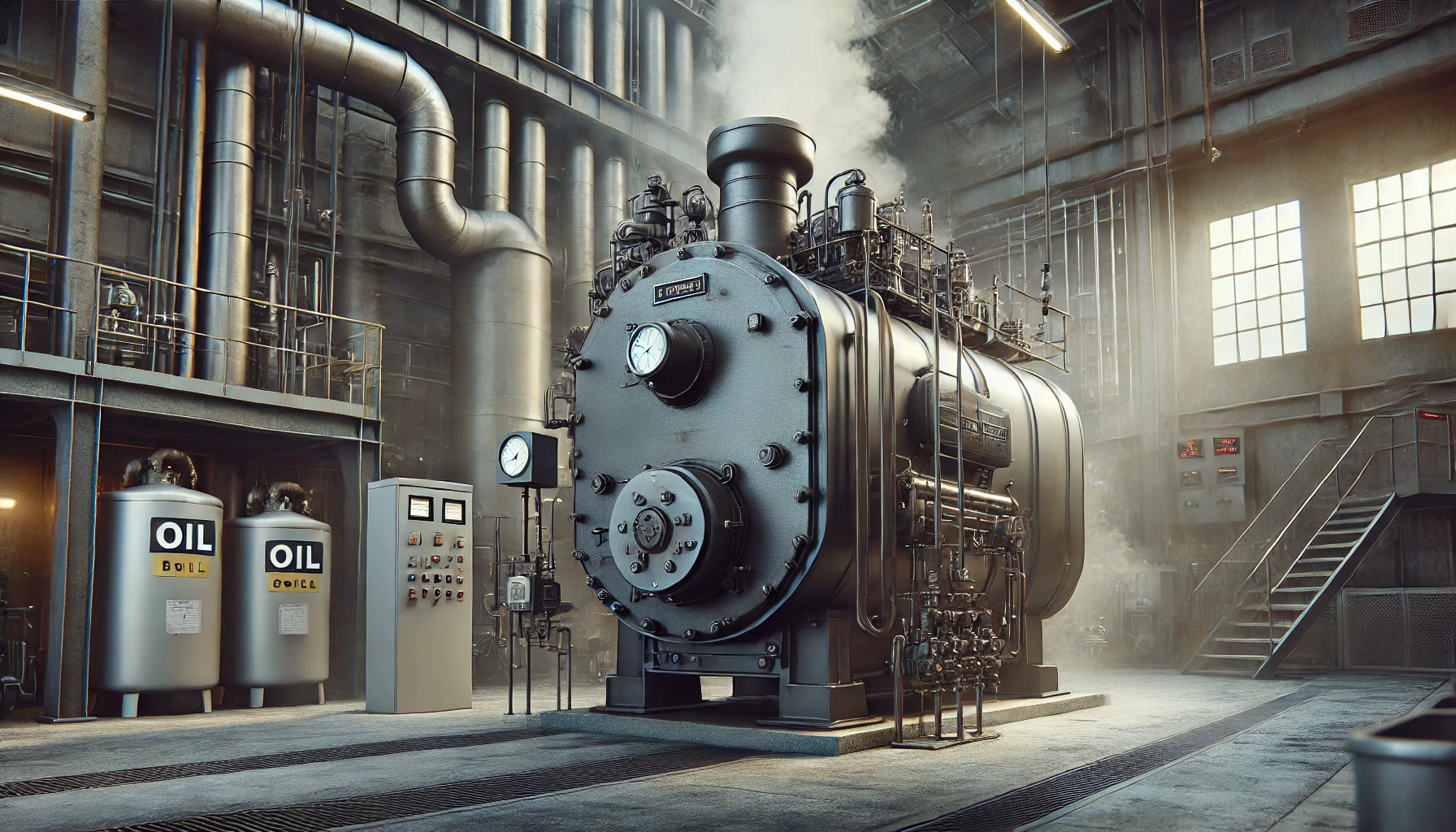Oil fired Boiler
Descriptions
Oil boilers use petroleum-based fuels such as diesel or heavy oil to generate heat. These boilers function by pumping the fuel into a combustion chamber via a specialized fuel pump. The fuel is then ignited to produce heat, which is transferred through a heat exchanger to warm water. The heated water can be used in industrial applications or for heating purposes.
Oil boilers offer greater geographical flexibility compared to gas boilers, as they can be used in areas without access to natural gas networks. They are capable of producing large amounts of heat, making them ideal for heavy industrial applications or large-scale use. However, they emit more pollutants than gas boilers and require regular maintenance to manage carbon and ash buildup resulting from combustion. Additionally, operational costs can be higher due to fluctuating oil prices.

